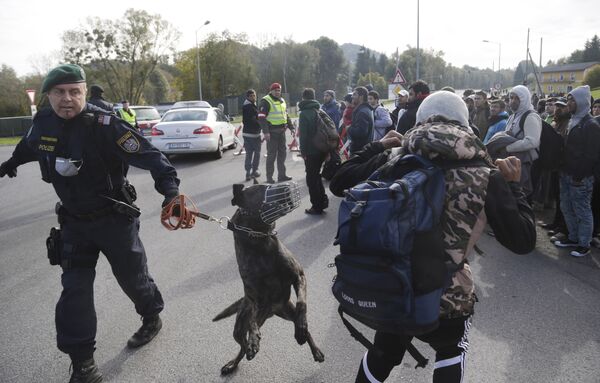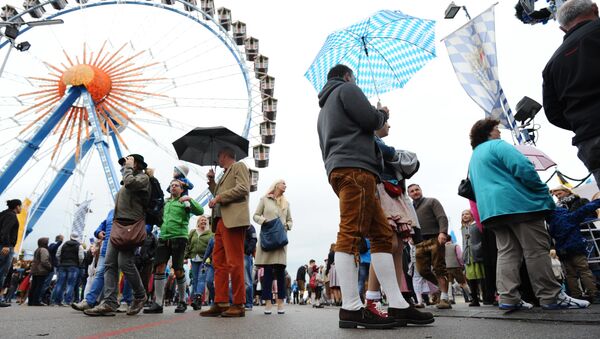Bavaria's Prime Minister Horst Seehofer sharply criticized Austria for its lack of co-ordination allowing thousands of asylum seekers every day to flood over the border into the state, which has borne the brunt of the refugee crisis. Seehofer has been critical of Merkel's 'open doors' policy, which has led to hundreds of thousands moving across into Europe fleeing war zones in Syria, Afghanistan and Iraq.

As he called on Merkel to tackle the Austrian government head-on, Seehofer said:
"Austria's behavior is straining neighborly relations."
Seehofer also called for the unco-ordinated wave of refugees on the so-called Western Balkan route to be terminated immediately:
"She [Merkel] met with Austrian Chancellor Werner Faymann on September 4, to discuss the policy of open borders. It can and must end with the Chancellor."
Seehofer noted that Merkel set a deadline of November 1 for Berlin to take control of the border issue with Vienna, otherwise "we need to consider what options we have."
"We were not prepared for it," said a spokesman for the police. He said they had no warning from the Austrian authorities. The refugees were believed to have been taken by bus to the German border.
The President of the District Councils, Reinhard Sager warned that there was a limit on the number of people they could deal with and that the system was close to collapse. "We can no longer bear it," Sager told Ruhr Nachrichten.
'Political Folly'
Steven Woolfe, British anti-Europe party UKIP's Migration Spokesman said:
"Germany's Chancellor Angela Merkel's perceived opened-ended welcome to all migrants is a colossal, historic mistake for the European Union. It's political folly on a grand scale."
"Her decision sent a powerful message to migrants, whether Refugee or Economic, that irrespective of international law, Germany was now a viable destination to go. Any basic research on what tools migrants use to navigate their way from safe havens in Turkey and Jordan shows that social media, amplified by word of mouth communication, plays a huge part in both the decision whether to migrate and a migrant's destination of choice. This increases the speed and numbers of those wishing to leave the safe havens where many currently reside," he told UKIP members in the north of England.
Merkel's offer to take in over 800,000 refugees by the end of 2015 and to breach the Schengen and Dublin Agreements on a borderless Europe and asylum policy has thrown it onto a collision path with its fellow European countries. Schengen calls for a borderless Europe, while the Dublin rules say asylum seekers must be processed in the country of landing.



